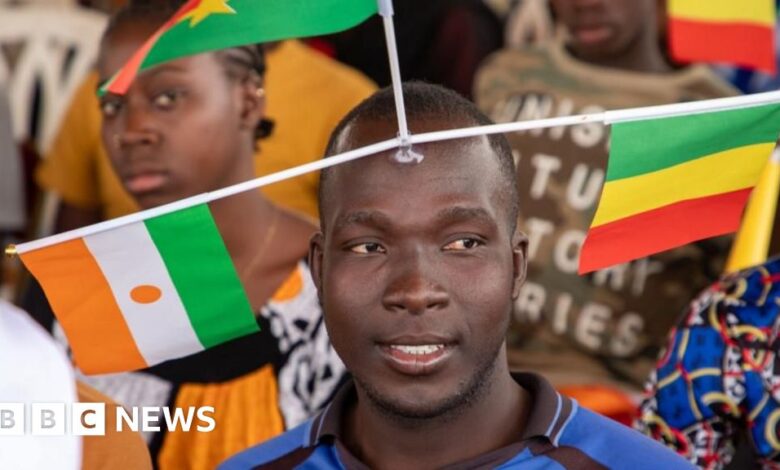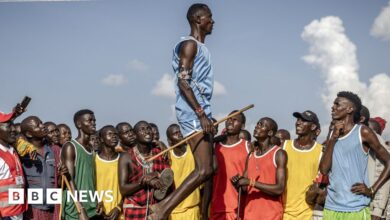West African countries agree to leave Burkina Faso, Mali and Niger

Leaders of the West African regional group, Ecowas, approved the withdrawal of the three military-ruled countries from the bloc, but gave them a six-month grace period to reconsider.
Mali, Burkina Faso and Niger plan to withdraw from Ecowas in January after rejecting the bloc’s demands to restore democracy.
The three departing countries were all founding members when Ecowas was established in 1975 to improve economic and political integration in West Africa, so this is a blow to Africa’s most developed trade group. .
Citizens of all Ecowas countries now have the right to live and work in all member countries, and goods can circulate freely.
Ecowas has not yet said whether it will impose restrictions on people and goods arriving from the three departing states, which have formed a new grouping, the Alliance of Sahel States (AES, the acronym). France).
The Ecowas Committee in Abuja has been tasked with addressing such issues and how the two blocs will work together in the future.
Over the weekend, AES announced visa-free travel and residence rights for Ecowas citizens.
Their leaders said the decision was made in the spirit of friendship and aimed at strengthening centuries-old ties between African people.
However, these three countries are all poor and landlocked, so most migrants from them go to the richer, coastal countries of West Africa.
A meeting of Ecowas leaders in Nigeria said on Sunday they respected the decision of the three Sahel countries to leave but set a transition period of six months.
Between January 29 and July 29, 2025, the trio can be rejoined to the block if they decide to rejoin the community, a release from Ecowas noted.
Meanwhile, negotiations led by Senegalese President Bassirou Diomaye Faye and Togo’s Faure Gnassingbé will continue.
So far, the junta has refused to stay in the bloc despite efforts to persuade them.
After a ministerial meeting on Friday in Niger’s capital Niamey, the three states said in a joint statement that their decision was “irreversible”.
Their withdrawal would be a major blow to regional unity as well as efforts to promote economic and security cooperation.
At the summit’s opening, Ecowas committee head Omar Touray said their “imminent departure” was “disappointing”, but he wanted to “commend ongoing reconciliation efforts” , AFP news agency reported.
With their planned departure, the bloc will lose 76 million of its 446 million inhabitants and more than half of its total geographical land area.
In a statement, AES President, Mali’s military leader Assimi Goïta, said the rights of Ecowas citizens to “enter, circulate, reside, establish and leave the territory” of the new bloc will be maintained. maintain.
His statement is considered a signal to Ecowas leaders that Burkina Faso, Mali and Niger want to maintain good relations despite leaving the bloc.
The three states informed Ecowas in January 2023 that they would withdraw after a year, meeting the timeline set by the bloc for states that decide to leave.
Relations between the bloc and the three countries became tense after military coups took place in Niger in July, Burkina Faso in 2022 and Mali in 2020.
Ecowas condemned the coups and suspended their membership, hoping they would restore civilian rule.
But the coup leaders remained determined and turned to Russia.
They accuse Ecowas of being too close to Western powers and increasingly relying on Russia to fight armed jihadists waging an insurgency in the region.
Correction December 16: This article originally described the trio’s plan as the first split in Ecowas. In fact, Mauritania withdrew in 2000 so we removed this line from the story.




